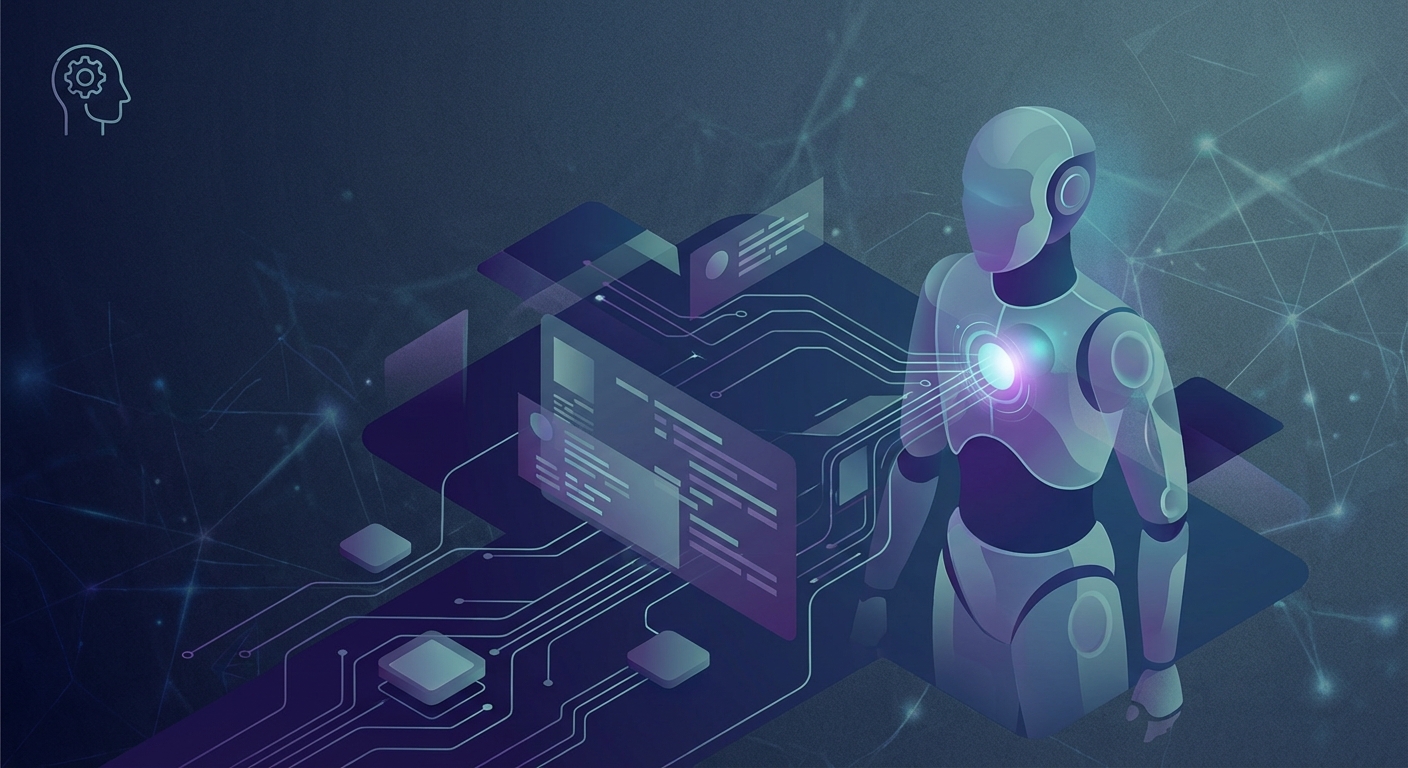Smarter and Faster Automation of Network Operations
TL;DR
- This article covers how AI-driven automation is revolutionizing network operations, making them faster and smarter. Included how businesses can leverage AI agents, orchestration, and advanced security measures to streamline processes, reduce errors, and enhance overall network resilience, and stay competitive. It also explores practical applications and benefits of automation.
The Rising Need for Smarter Network Automation
Ever feel like your network's running you, instead of the other way around? It's like trying to herd cats, especially with how complex things are getting.
Modern networks are a beast, right? Between diverse connectivity needs and trying to operate globally, it's a lot. Think about it – every office has different internet needs, and managing everything from SD-WAN to satellite connections? That's a headache. Plus, if you're dealing with compliance in different countries, different performance standards – like ensuring low latency for real-time applications or meeting specific Quality of Service (QoS) levels – and a bunch of ISPs, well, good luck with that. Dealing with multiple ISPs can mean juggling different contract terms, varying support levels, and inconsistent network performance, which adds layers of complexity to troubleshooting and management.
- Manual processes make it even harder.
- Errors creep in, and you're basically flying blind.
- The IDC InfoBrief, Enterprise Horizons 2024 revealed almost half (49%) of technology leaders are planning to lean more on Managed Service Providers (MSPs) or NaaS providers in the next year, just to keep their heads above water. ([Source: Unverified claim - citation needed or remove])
But, network automation? It's like bringing in a smart assistant to handle the grunt work. It's about using software to manage, configure, and deploy network stuff automatically. Which means less errors, better efficiency, and way more room to grow.
- Think better efficiency, like provisioning new sites in hours instead of weeks (Site collection creation via Admin center taking over 30 minutes), as Expereo highlights.
- Proactive monitoring means catching issues before they blow up, which is kinda critical.
- Plus, imagine your network intelligently routing traffic to avoid bottlenecks.
All this means less downtime and smoother operations. Because who has time for constant firefighting?
The sheer complexity of modern networks, coupled with the inherent inefficiencies and error-proneness of manual management, creates a clear demand for more advanced solutions. This is where artificial intelligence steps in. AI agents, with their ability to process vast amounts of data, learn patterns, and make autonomous decisions, offer a powerful way to tackle these challenges. They can move beyond simple automation to intelligent, predictive, and self-healing network operations, addressing the limitations of traditional approaches.
So, what's next? Let's dive into how smarter network automation can actually proactively detect and squash network issues before they even become problems.
Unlocking the Power of AI Agents in Network Operations
AI agents in network operations? Sounds kinda sci-fi, right? But it's more real than you think, and honestly, its about time we had some help!
- Proactive problem-solving: Instead of just reacting to network fires, ai agents can actually predict them. Imagine algorithms forecasting traffic surges and automatically tweaking bandwidth before anyone notices a slowdown. That's the dream. AI agents can predict network issues by analyzing historical data, identifying anomalies, and recognizing patterns that precede failures.
- Smarter traffic management: ai and machine learning can figure out the most efficient data routes. It's not always a straight line you know? Network traffic might not follow a direct path due to factors like latency (the time it takes for data to travel), congestion (when too much data is trying to use a link), or policy-based routing (where specific traffic types are directed along predetermined paths for security or performance reasons). AI agents can detect these bottlenecks and reroute traffic on the fly. It makes things way more efficient.
- Hands-off provisioning: Forget manual config. ai agents handle provisioning and configuring network resources automatically. Think about setting up new sites or services in hours, not weeks. Its about time we had this level of efficiency.
It's not just about speed, though. It's about accuracy. With validated data and standardized processes, these agents minimize human error. No more fat-fingered typos causing network outages at 3 am, hopefully!
Think about hospitals, needing rock-solid networks for everything from patient monitoring to transferring huge image files. Or retailers handling massive transaction spikes during sales. AI agents can dynamically allocate resources to keep everything running smoothly. For a retailer gearing up for Black Friday, this could mean AI agents integrating with cloud providers to automatically spin up more server instances or provision additional bandwidth through dynamic circuit provisioning services, ensuring website stability during peak traffic.
So, what's the next step? Well, Technokeen definitely has some ideas on how to make all this happen, so let's dive into the specifics of how they're streamlining business processes with automation.
Benefits of AI-Driven Network Automation
Okay, so you're probably wondering how all this ai-driven network stuff actually works when it comes to just, you know, getting things done. It's not just theory, promise.
- Scaling on demand: Imagine a retailer gearing up for Black Friday. AI agents can automatically allocate more bandwidth to handle the transaction spike, then scale it back down, like, right after. No more crashed websites during the biggest sale of the year. This scaling is achieved through integrations with cloud infrastructure or dynamic network service providers.
- Adapting to new locations: say a company are opening a new branch office in another country? AI can help to quickly configure network settings to meet local regulations and connectivity needs, without the IT team needing to spend weeks doing it manually.
- Flexible support for new services: Think about healthcare -- as hospitals adopt new telemedicine services, AI agents can optimize network performance to ensure smooth video calls and data transfers, no matter how much traffic there is.
It's about having a network that can bend, not break, when things get crazy. These benefits directly translate into more resilient and responsive business operations, allowing companies to adapt quickly to changing market demands and operational needs.
The Role of APIs and Integrations
Okay, so we've talked about AI agents and all the cool things they can do. But how do you actually make it all work together, you know?
- APIs are key for data flow: Think of APIs as the translators between different software. They make sure that data can flow smoothly and accurately. In network operations, APIs facilitate the exchange of critical information such as configuration data (e.g., setting up new devices), performance metrics (e.g., bandwidth usage, latency), and status updates (e.g., device health, connection status).
- Integrating with what you already use: It is really important that this is done right. Rebuilding entire systems is undesirable due to the immense cost, significant operational disruption, and the inherent complexity of migrating data and workflows. You don't want to have to rebuild your whole system. Common integrations sought include connecting network management platforms with IT service management (ITSM) tools, security information and event management (SIEM) systems, and cloud orchestration platforms.
And, imagine how much easier life gets when all your systems talk to each other without you having to manually move stuff around. It's like finally getting all your apps on the same page!
When integrating network automation solutions, "done right" entails ensuring robust security protocols to protect sensitive data, verifying compatibility between different systems to prevent conflicts, and designing for scalability to accommodate future growth and increased data volumes.
So, yeah, APIs and integrations? They're kinda the unsung heroes that make all this AI magic happen.




